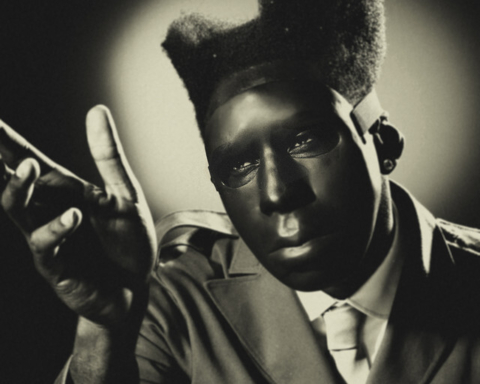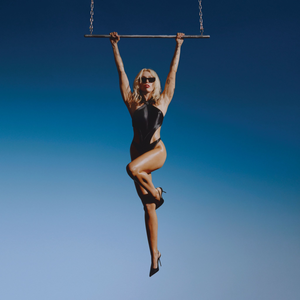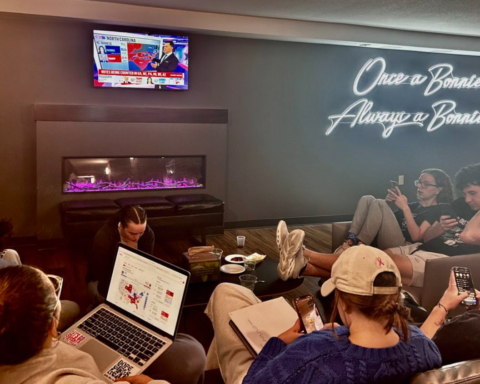By Thomas Cottingham
Features Assignment Editor
While traveling with fellow label mate Schoolboy Q of Top Dawg Entertainment earlier this year, newcomer and Tennessee rapper Isaiah Rashad was stuck in the mud.
During the world tour, Rashad became hooked on hard drugs and alcohol. He slept on friends’ couches because he had no place to stay. His career was heading towards a steep fall.
Luckily, Rashad cleaned up his act. He did not need rehab, hasn’t taken a drug since and only drinks on occasion. This gave him the clear mind and time to work on his debut album, The Sun’s Tirade. This album, said by Rashad himself on the song “Rope,” is “for the vibers.” This project is a smooth, laid-back rap album that focuses on themes of depression, struggle, addiction and the fear of growing up.
For an album with a dark undertone, the production is crisp and upbeat. At the beginning of the album, “Free Lunch” strives to make a jazzy anthem of living the life of a rap star and putting food on the table every night. The addictive hook (“meal ticket, ticket,”), the 70s jazz piano and the lazy guitar riffs make this track a standout. Rashad’s flow in this is unique, clean, and changes after every hook refrain.
Rashad does a good job on his solo tracks, but exceeds with his features on this project. Because the album is 17 tracks deep and less than half include other artists, the feature artists are a real treat.
TDE stars such as Jay Rock and SZA complement the album, but the best feature is Kendrick Lamar on the track “Wat’s Wrong”. The west coast R&B vibes from this song, along with the heavenly backup vocals, set up Rashad for a sharp first verse, but Lamar steals the show. Kendrick Lamar has the capability to be versatile with his flows, so he is able to deliver a calm but cutting verse that shows that he is still on top of his game.
“I told Zay, I’m the best rapper since twenty-five / Been like that for a while now, I’m twenty-nine,” raps Lamar.
Songs like “Stuck in the Mud” and “Rope” reflect heavily on Rashad’s past drug use. Lines such as “When I’m sober I might testify / That this world has fallen out of place” and “I get livid on that liquor” show how drugs changed him and how his life was spinning in circles.
The song “Silkk Da Shocka” shows that he is not alone while traveling down the steep slope of drug addiction. Rashad raps in a poetic way that “these stars are nothin’ but your cousins / And starin’ at your mama in heaven was a father / So holla you heard I’m usin’ narcotics.” In this sense, Rashad is explaining that humble men to American superstars can all share the same woes of addiction.
Another merit of this tape is the fact that Rashad does not shy away from experimental rap and production.
The song “A Lot,” produced by Mike Will Made It, who helped bring the success of artists like Future and Rae Sremmurd, switches gears and brings a more trap inspired, instrumental beat. While explaining the balance of rap fame and talent, Rashad spits about the importance of being a genuinely positive father figure to his son, Yari. On another track, “Dressed Like Rappers,” Rashad explains his isolation from the outside world and that the only things keeping him in tact are weed, alcohol, and women. He does want to live the rap lifestyle, but also wants to be there for his son, and has to choose.
The Sun’s Tirade is a solid project, but does have a few misses. The album has some unnecessary tracks. These filler tracks include “AA” and the outro song “By George,” which can be forgetable. He also does not go deep enough for listeners to visually see the struggle he has been through during the creation of his album. However, it is good enough. It brings out a fresh, new southern rap sound which is heavily influenced by OutKast, Pimp C and Curren$y.
While creating this project, Rashad was doing so badly with his drug dependency that he almost got pulled from TDE; the label that includes some of the most popular artists in the country. After a year of battling out addiction and releasing a stellar rap project, Isiah Rashad might have a glass ceiling.
cottintf14@bonaventure.edu








